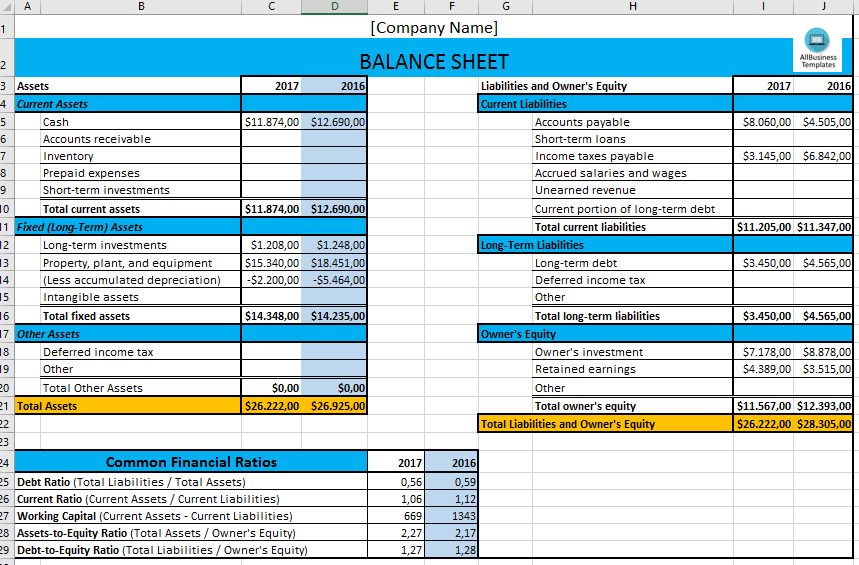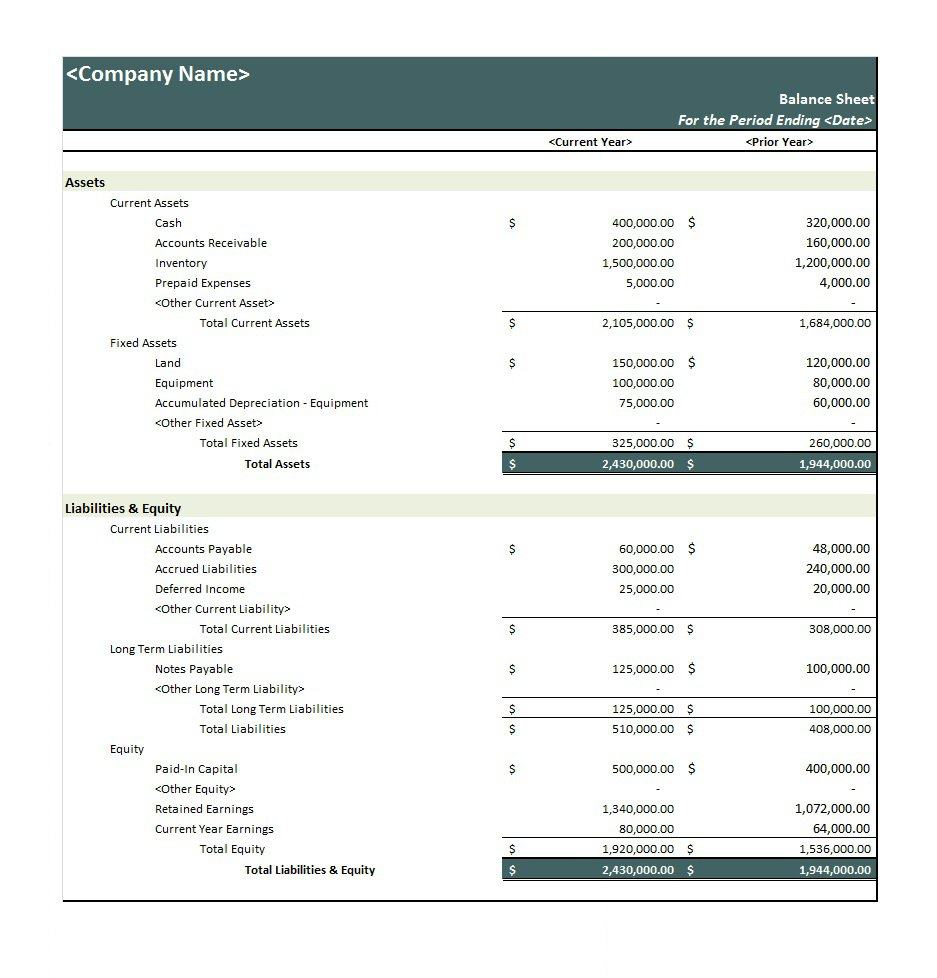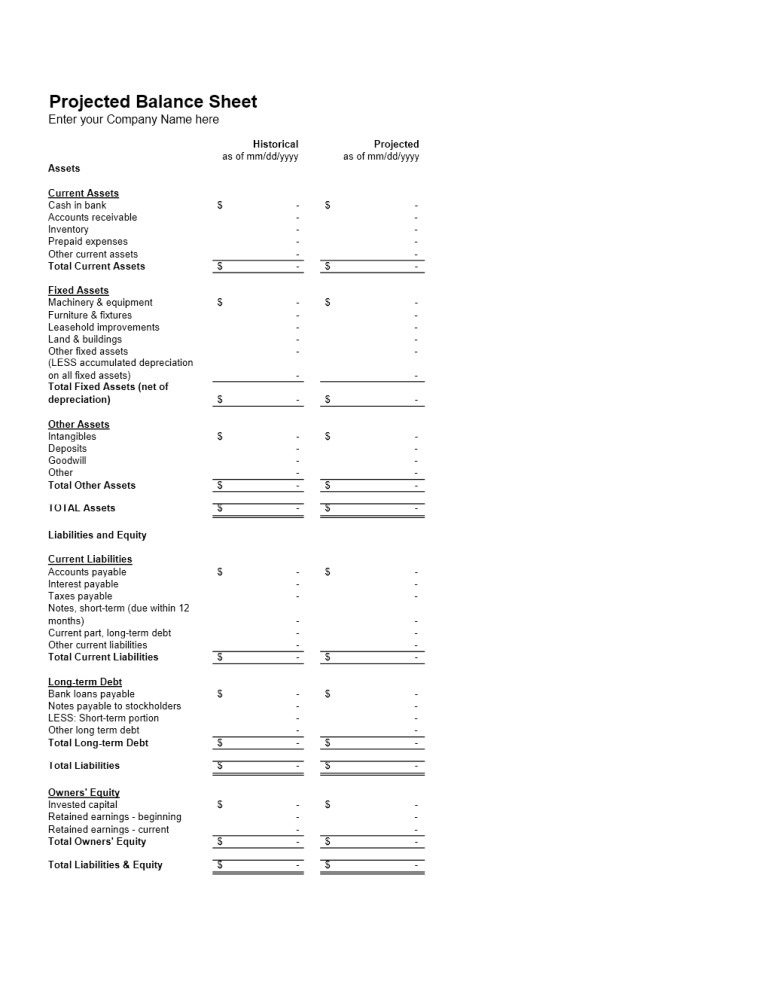Create Your Balance Sheet in Excel 2007 Easily

Creating a balance sheet in Microsoft Excel 2007 can be a straightforward process if you know the steps. A balance sheet is a fundamental financial statement used by businesses to report the financial position at a specific point in time. By detailing assets, liabilities, and equity, it provides a snapshot of the company's financial health. This guide will walk you through the process of setting up a balance sheet using Excel 2007.
Understanding the Balance Sheet

Before we dive into Excel, let’s briefly review what constitutes a balance sheet:
- Assets: Everything of value that is owned by the company.
- Liabilities: All the financial obligations the company owes.
- Equity: The remaining interest in the assets of an entity after subtracting liabilities, which is essentially what would be left if all assets were sold and all debts were paid off.
Setting Up Your Excel Workbook


Here are the steps to create your balance sheet:
- Open Microsoft Excel 2007: Start Excel from your Start menu or desktop shortcut.
- Create a New Workbook: Click on the Office Button at the top left, then click “New” to start a fresh workbook.
- Input Headers: In the first row, type “Assets” in column A, “Liabilities” in column C, and “Equity” in column E. Adjust these headers to fit your company’s needs.
- Add Sections: Under each header, create sections such as Current Assets, Fixed Assets, Current Liabilities, Long-term Liabilities, and Owner’s Equity.
| Category | Description |
|---|---|
| Current Assets | Cash, Inventory, Accounts Receivable |
| Fixed Assets | Property, Plant, Equipment |
| Current Liabilities | Accounts Payable, Short-term Loans |
| Long-term Liabilities | Long-term Debt, Deferred Tax Liabilities |
| Equity | Owner's Equity, Retained Earnings |

📝 Note: Keep in mind that the classifications might vary based on your industry or company's accounting practices. Adjust accordingly.
Inputting Financial Data

Now that you have the structure, start adding the financial data:
- Enter each line item under its respective category. For example, under Current Assets, you might list cash on hand, accounts receivable, and inventory.
- Calculate the subtotals for each section by using the SUM function. For example,
=SUM(B3:B10)where B3:B10 contains the values for Current Assets.
Formatting Your Balance Sheet

To make your balance sheet more professional and readable:
- Number Formats: Ensure all monetary values are formatted correctly for currency. Select the cells containing numbers, go to the Home tab, click on the drop-down arrow next to “General,” and choose “Currency.”
- Bold Headings: Bold the headers and subheaders for better visibility.
- Add Borders: Borders help separate sections clearly. Click the ‘Borders’ button in the Font group of the Home tab, then choose “All Borders.”
Verification and Review

Before finalizing your balance sheet:
- Check Totals: Ensure that Total Assets = Total Liabilities + Owner’s Equity. If these figures don’t balance, review your entries for errors.
- Adjust Columns: Use the “AutoFit Column Width” feature to ensure all data fits within the columns.
- Proofread: Check for any spelling or grammatical errors to maintain professionalism.
To summarize, setting up a balance sheet in Excel 2007 involves understanding the components of a balance sheet, organizing your workbook, entering financial data, and ensuring accuracy through formatting and verification. By following these steps, you can efficiently compile a clear, accurate, and professional balance sheet that can be used for internal analysis or shared with stakeholders.
What are the key components of a balance sheet?

+
The main components are Assets, Liabilities, and Equity, which show what the company owns, owes, and the owners’ interest in the business.
How often should a balance sheet be prepared?

+
Typically, a balance sheet is prepared at the end of each financial period, which can be monthly, quarterly, or annually, depending on business needs.
Can I use Excel 2007 for balance sheet preparation if I am not an accountant?

+
Yes, anyone can use Excel 2007 for basic financial reporting like a balance sheet, provided they understand the basic accounting principles involved.